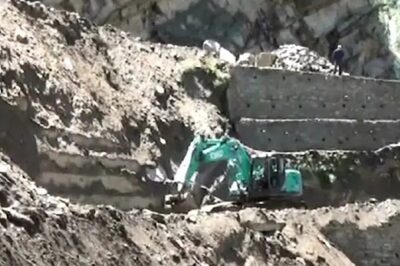
views
New Delhi: Justice AK Patnaik has called the Selection Committee’s decision to remove CBI director Alok Verma “very hasty”. But some of his views on the “evidence” against Verma raise more questions than answers.
Justice Patnaik, who supervised the CVC probe against Verma on a request made by the top court, spoke to CNN-News18 on Saturday morning. He has also been quoted by The Indian Express as saying there was “no evidence of corruption” against the former CBI chief.
The retired Supreme Court judge, however, maintains at the same time that he had only “supervised” the investigation to ensure principles of natural justice and other procedural regularities. He does not say anywhere that he saw and analysed the evidence.
If Justice Patnaik only supervised, how and why should he then comment on the evidentiary value of the charges against Verma?
The other question that arises is that if the former SC judge has not admitted to have seen the evidence, what can be the basis to say there was “no evidence of corruption” against Verma?
Emphasising that his role was merely supervisory, Justice Patnaik also confirmed Verma’s claim that the findings of the CVC report were not his. In the light of his own statement, was it within the jurisdiction and mandate of Justice Patnaik to analyse the evidence? It is also worthwhile to mention that even the Supreme Court stayed away from commenting on the evidence in the case.
Justice Patnaik, in his two-page note to the Supreme Court, had also stated that he only supervised the CVC probe. Therefore, if the former judge was of the opinion that his mandate was only to ensure the propriety of the process, should he comment upon the evidence against Verma?
Besides, Justice Patnaik, if he had seen the evidence at all, had the liberty to tell the Supreme Court that he differed with the findings of the CVC regarding the charges against Verma. Instead, the former judge simply told the court that he has carried out his supervisory role in terms of the mandate.
Justice Patnaik is right in saying that the CVC’s word cannot be final. But then the bigger question is how one should take the word of a former judge, who had so far taken a stand in the highest court of the land that he had to only supervise the process and not comment on the merits of the investigation. And if Justice Patnaik did indeed go through the evidence, there is a public duty cast on him to elaborate how he concluded there was no evidence.



















Comments
0 comment